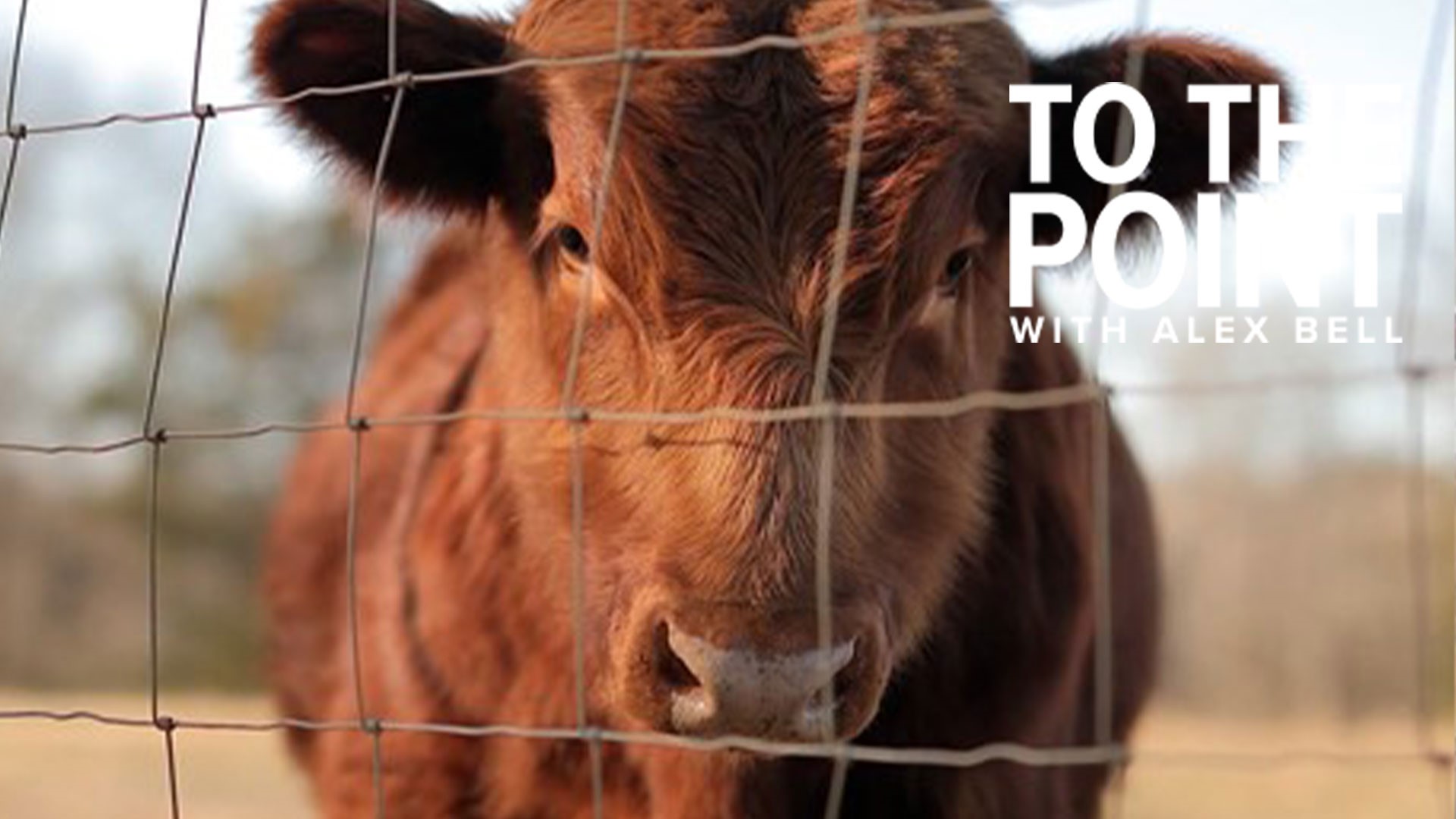DAVIS, Calif. — With rising temperatures and worsening drought, scientists are dreaming up ways to ensure farming and agriculture can be better for the environment and more efficient. And they’re making their dreams come true — with genetics.
This fall, President Joe Biden issued an executive order to advance biotechnology and biomanufacturing in the United States: it covers many things from medicine and energy to agriculture.
The idea is to remain competitive with countries like China.
To look at what’s possible, ABC10 zeroed in on research being done right here in Northern California to make cattle and dairy production more sustainable.
“We've inactivated a gene that contributes to fertility,“ said a researcher.
Researchers at UC Davis have a hypothesis that the particular gene they’ve knocked out will make one of their cows sterile. If correct: that identification will help them in long-term efforts to breed cattle with the best genetics.
This has been Professor Alison Van Eenennaam’s work for more than 20 years.
“Genetics is a huge component of sustainability," said Van Eenennaam. "So, if we can have disease resistance, adaptable animals that are able to withstand heat, then we could actually produce more product with less animals and that's really what breeders have been striving towards, for whatever ever since animal breeding began.”
Frodo’s, one of the cows at UC Davis, genes were manipulated using the CRISPR method, a breakthrough technology that won the Noble Prize in 2020.
Other UC Davis projects using the CRISPR method include gene-editing dairy cows so they don’t grow horns.
A majority of cattle are dehorned to prevent injuries between animals and handlers.
De-horning cattle is a concerning practice when it comes to animal rights and welfare. Van Eenennaam says cross-breeding alone could eliminate horns but the resulting calf, "it's not really a dairy animal. it's not really a beef animal, and it won't have the ideal characteristics for either industry.”
She says it would take decades to breed the cows to dairy production standards — while those standards continue to climb.
“You'll never catch up that what's called genetic lag," said Van Eenennaam.
She hopes targeted gene editing can produce cows without horns and without the time commitments needed in conventional cross-breeding.
According to Pew Research: 48% of Americans say genetically modified foods are unsafe to eat, while a much smaller median of 13% say gm foods are safe.
This is at odds with a clear scientific consensus that genetically modified foods are safe.
Only one gene-edited food product has gone to market in the United States: the AquaAdvantage salmon.
And just this year, the FDA cleared slick-coat cattle for use in the United States. They're beef cattle that have been gene-edited to have short hair, a trait that allows them to withstand high heat, as the climate continues to warm.
The FDA determined the edits were equivalent to natural mutations.
"We're in the biotech era, and it's literally influencing and revolutionizing agriculture, medicine, everyday life, creation of everyday products, and synthetic biology. so it's revolutionary," said Jon Entine, founder of the genetic literacy project.
Entine says bio-science needs public buy-in to be successful — which is why addressing public concerns is important.
“There are challenges ahead and we have to be respectful," said Entine.
Many of the critiques of GMOs involve monopolization of technology, unintended consequences, ethics — and safety.
Signaling a possible pathway to more acceptance.
As previously mentioned, President Biden issued an executive order to push more government dollars to the U.S. Biotechnology industry — drawing parallels to former President John F. Kennedy’s 1961 race to land a man on the moon before the end of the decade.
Entine and Van Eenennaam say Biden's executive order cracks open the door for more innovation, but are cautiously optimistic.
"I've also had 20 years of watching how slowly the wheels turn in DC sometimes, but any effort by the president or Washington to try to improve the process is welcome," said Van Eenennaam.
“But we can't let the regulatory situation become mired in a debate over just differences of opinion that are not science-based ultimately," said Entine.



















